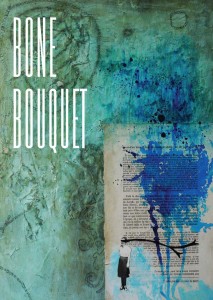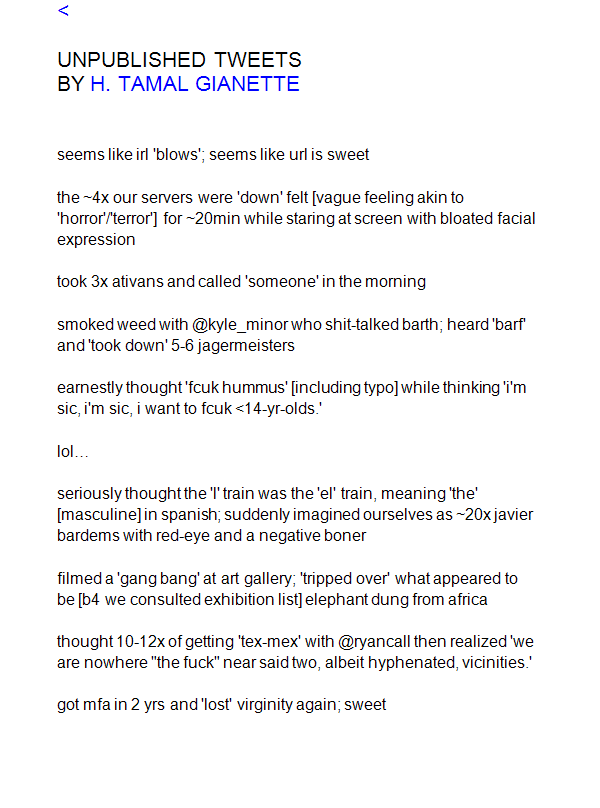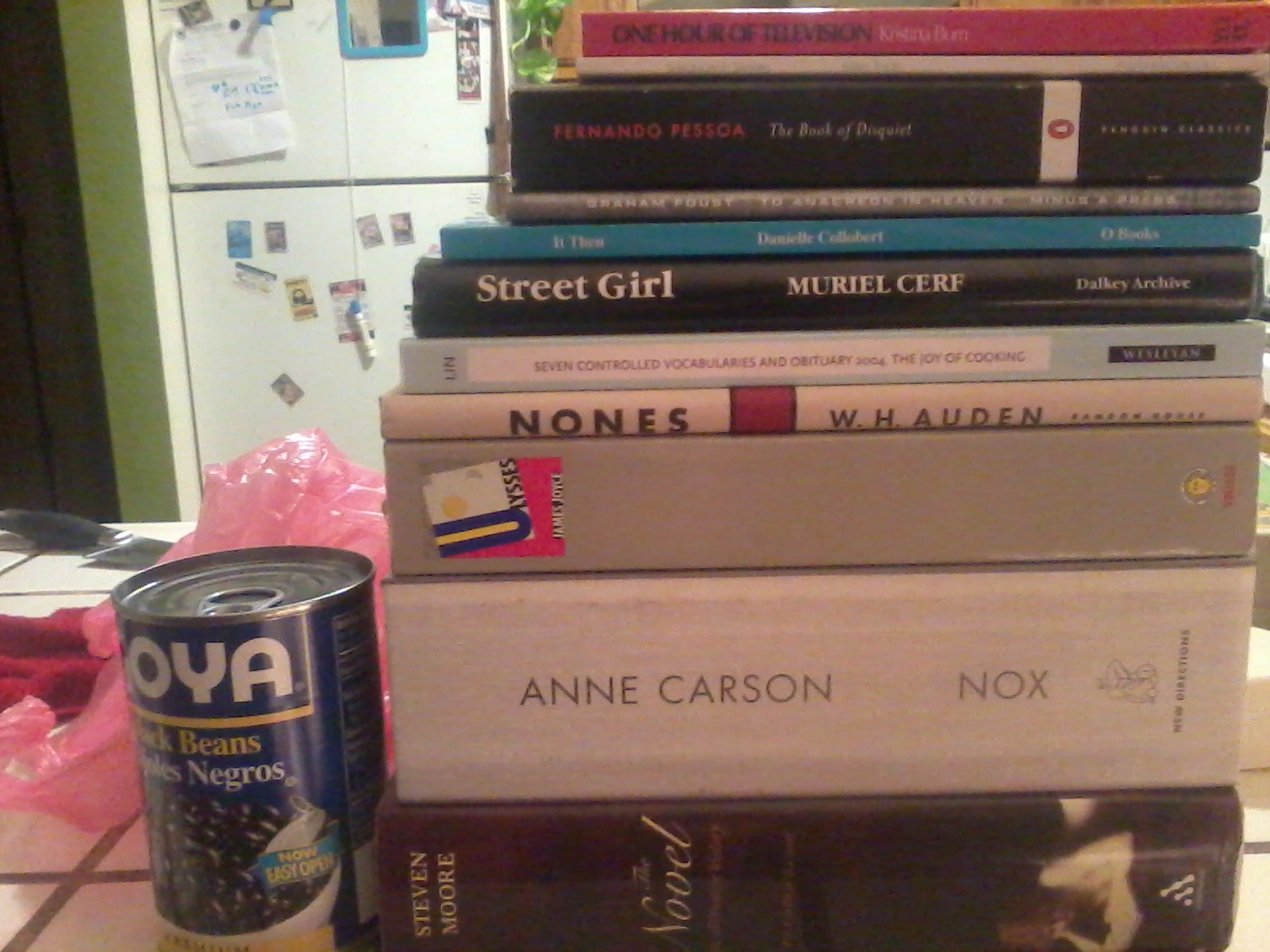 In the poem “Uncle B’s Drive-in, Granbury TX,” Kara Dorris writes: “My bra strap slips off a shoulder / the body a cracked egg.” When thinking of Bone Bouquet, a journal of poetry by women, I keep coming back to the line about the cracked egg—thinking of poetry as cracking an egg, of the egg as a body, the body breaking, poetry… a leaking body.
In the poem “Uncle B’s Drive-in, Granbury TX,” Kara Dorris writes: “My bra strap slips off a shoulder / the body a cracked egg.” When thinking of Bone Bouquet, a journal of poetry by women, I keep coming back to the line about the cracked egg—thinking of poetry as cracking an egg, of the egg as a body, the body breaking, poetry… a leaking body.
Another poem in the book—“Tract, Tract” by Emily Skillings—reads:
Every body is a leaking body
Some practices try to control the leaking
but the leaking is too strong
with its five ancillary roots
reaching to the great estuary.
I know because the practices are in my body
much like the leaking.
The attempt to control the body
and the leaking
is sometimes pleasurable,
always futile.
In a post on the Pank Blog, Elaine Castillo wrote, “Refusal to write through it. Refusal to be cured by writing. This mud hole, writing will not drag me from. This wound, writing will not cauterize.”
On one hand, there is the writer-doctor, the one who sutures the wounds, who masters the wildness with words (“The attempt to control the body”). And then there is the leaky blood-poet, the woman who unapologetically spills her blood all over the page, who rubs her cracked egg into paper and offers it up as a poem. Bone Bouquet seems to prioritize the latter.
There is a reaching quality to the poems, a yearning for something beyond The Word, scattered silence meant to open up space for listening. In Arielle Greenberg’s poem, words are liked black coals coughed up by the body, substitutes for The Unutterable yet still, they burn.
Volume 2, Issue 1 features poems by Carolyn Guinzio, Emily Skillings, Jennifer H. Fortin, Leigh Stein, Dawn Pendergast, Arielle Greenberg, Claire Hero, Becca Klaver, Jennifer Firestone, Tamiko Beyer, Kara Dorris, and Dana Teen Lomax. The issue can be purchased here.


